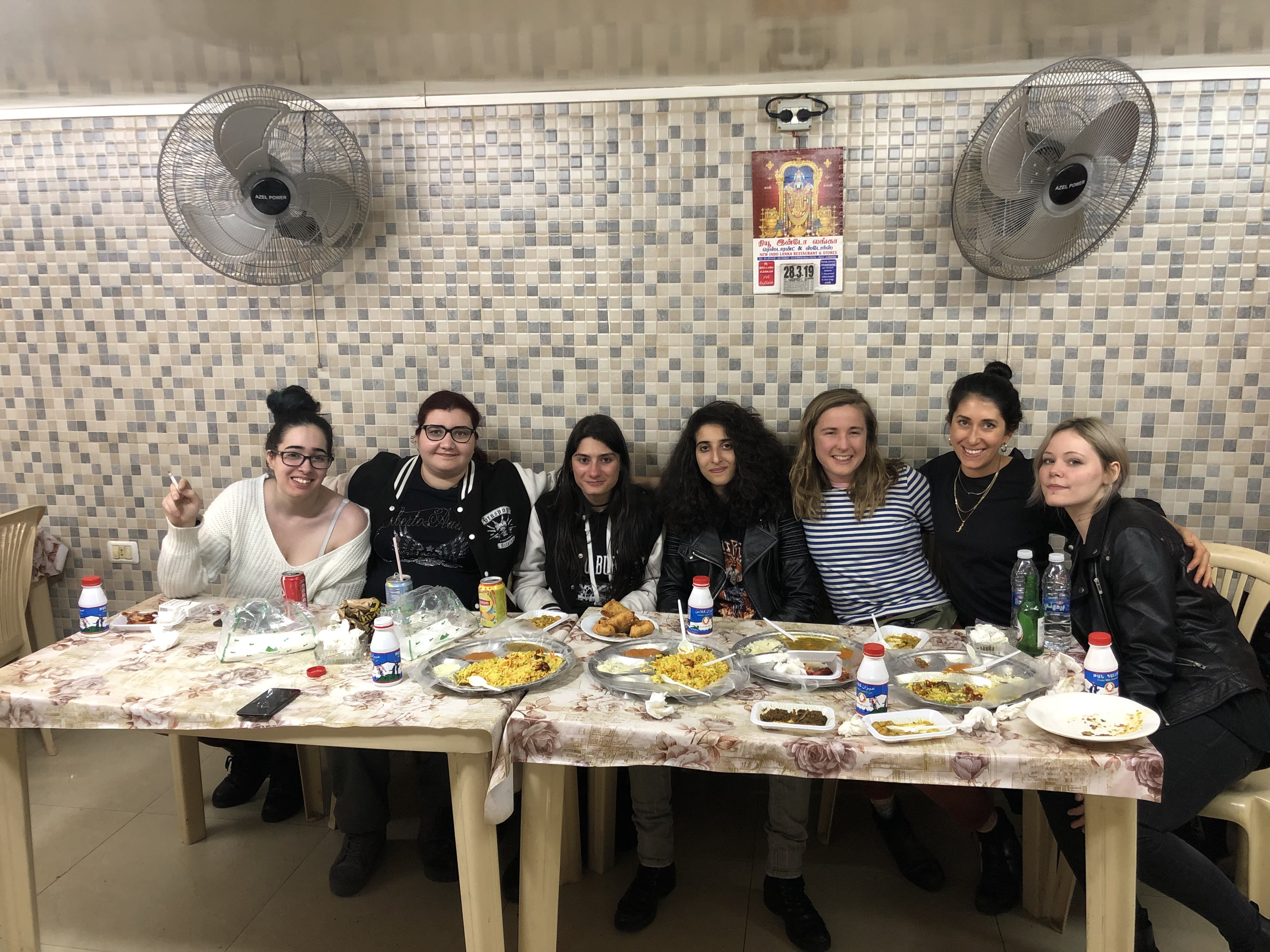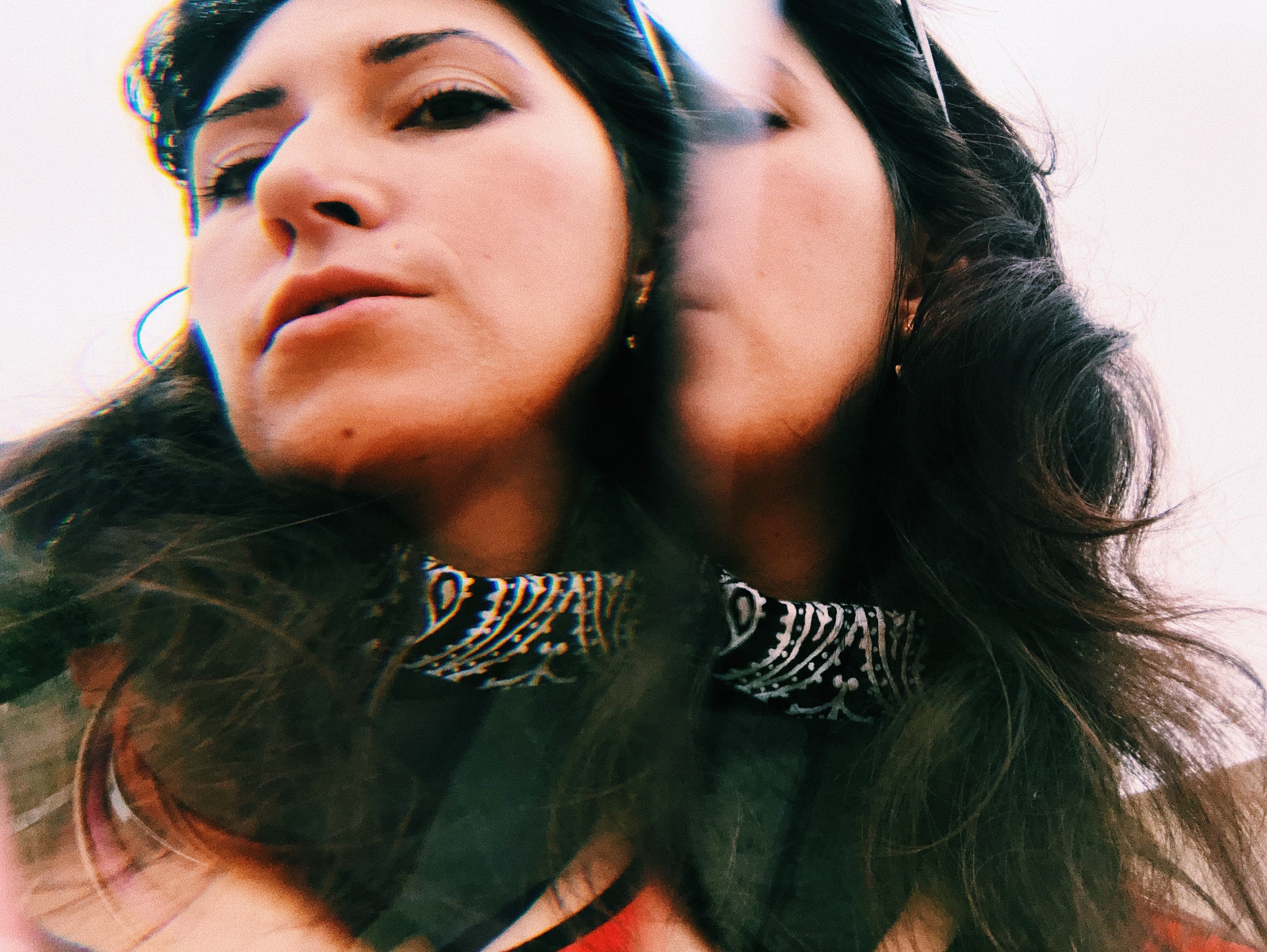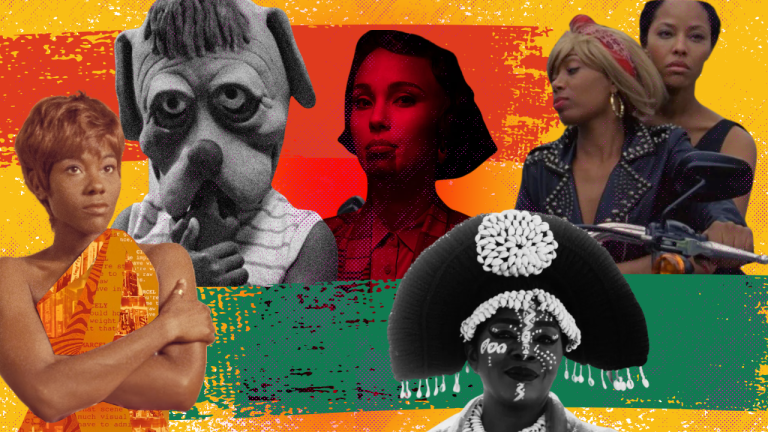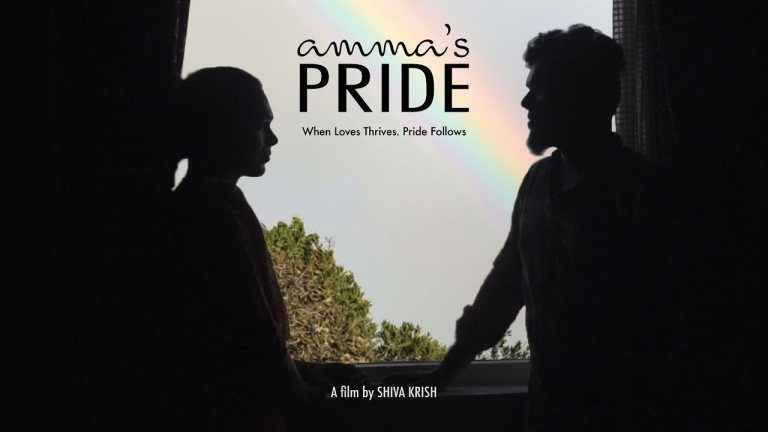
The result is a deeply compelling portrait of Lilas and Shery that’s been repeatedly praised for its intimate, detailed approach. But for Baghdadi, who served as the film’s director, producer and cinematographer, there’s no other way to work. “I realized I’m a character-driven filmmaker. It has to revolve around an interesting character and I want the access to the character to be deep and trusted and intimate,” she says. It’s not surprising, then, that Baghdadi cites Céline Sciamma as an influence on the film, hiring composer Jean-Baptiste de Laubier to score Sirens based on their collaboration.

Her determined attitude toward a particular visual language can also be located in her career trajectory more broadly. Baghdadi first held a camera when she was eight years old, and taught herself how to edit at thirteen. When she was sixteen, Baghdadi attended Maryland Film Festival and knew she wanted to be a filmmaker, but it wasn’t until she took an introductory course on documentary at Columbia College Chicago that she fell in love with the style. “I’m going to just be a filmmaker. I don’t have a choice, I don’t have a plan B. There is nothing else for me,” she recalls thinking. “It’s all I can do, so I just jumped right in.”
There were, of course, detours to her destination. After graduating, Baghdadi worked at a small foreign film distribution company that afforded her travel to international markets including Cannes, Toronto, Sundance, Hong Kong and Senegal. “It means I started my career in actual filmmaking and directing a little bit later because I took a couple of years to work for this company,” she says. Baghdadi met with overseas clients and learned how to sell a film, skills that have proved valuable to her career in the film industry. “I kind of reverse-engineered the business of it without realizing that was what I was doing at the time.”
Go make the film that you want to make. Ultimately, it’s your time, it’s your life.
Eventually, Baghdadi left her full-time job and began working on set as a cameraperson, where she was able to seize control of her schedule while learning from her collaborators. Her colleagues immediately recognized her talent for shooting in the vérité mode, attracting a steady flow of freelance job offers to pay the bills, but it gradually became apparent that she needed to develop her own projects. She told herself, “I’m never going to have time to make films if I don’t make the time.” Equipped with practical experience, she learned the language of grant writing and embarked on self-funded trips to begin producing her stories.
Needless to say, the risk paid off. Since then, Baghdadi directed two feature documentaries, four shorts, and a multi-platform miniseries, for which she won an Emmy Award. She, along with Jennifer Tiexiera and Camilla Hall, also co-founded Lady & Bird, a production company focused on stories from underrepresented voices. The tenacious filmmaker continues to work steadily, with a preference to balance multiple projects in various stages of production simultaneously. One project in post-production might inform how another is developed, and lessons from one film can be directly applied to the next. This workflow also allows Baghdadi to produce a volume of work that would be impossible otherwise. “These things take so many years that you’d really only make a few films in your lifetime if you just did one and you waited until that one was finished to start thinking about making the next one.”
To add to her extensive list of credits, Baghdadi also serves as a mentor to women of color who are emerging documentary filmmakers. Since 2013, she’s taught workshops through GlobalGirl Media and hopes to take part in a movement to demystify the film industry, sharing invaluable insights that she wishes she knew during the early stages of her career. When asked about the advice she gives to young filmmakers, she answers, “Go make the film that you want to make. Ultimately, it’s your time, it’s your life.” This inevitably becomes tricky when other production companies become attached, but Baghdadi encourages filmmakers to avoid diluting their creative vision for distributors or big names: “It’s the story you want to tell and it’s going to make it a much more unique film in the end, which is what’s going to rise to the top.”
,_Rita_and_Tatiana_el_Dahdah_(Sound_Co-Producer)_Filming_at_Glastonbury.JPG)
Over the course of our conversation, it’s evident that Baghdadi is unafraid to pursue her ambitions or vocalize them. She seizes every moment to work on her future projects, shifting between them as she waits to hear back about financing or other deals. “My best film is yet to come. My best film is always my next film,” she says. Baghdadi also mentions keeping a running list of ideas for films, even as she currently works on three projects—two are in development, while one is in production. One of these films, she shares, was conceived as the first companion piece to Sirens in a documentary triptych about young people in the Middle East and North Africa, a region she hopes to continue representing on screen.
For now, though, Baghdadi is taking a moment to celebrate the upcoming release of Sirens, which begins its theatrical run in New York and Los Angeles this fall. “It’s a filmmaker’s dream to have their film in theaters. I feel very blessed and proud of the film.”







